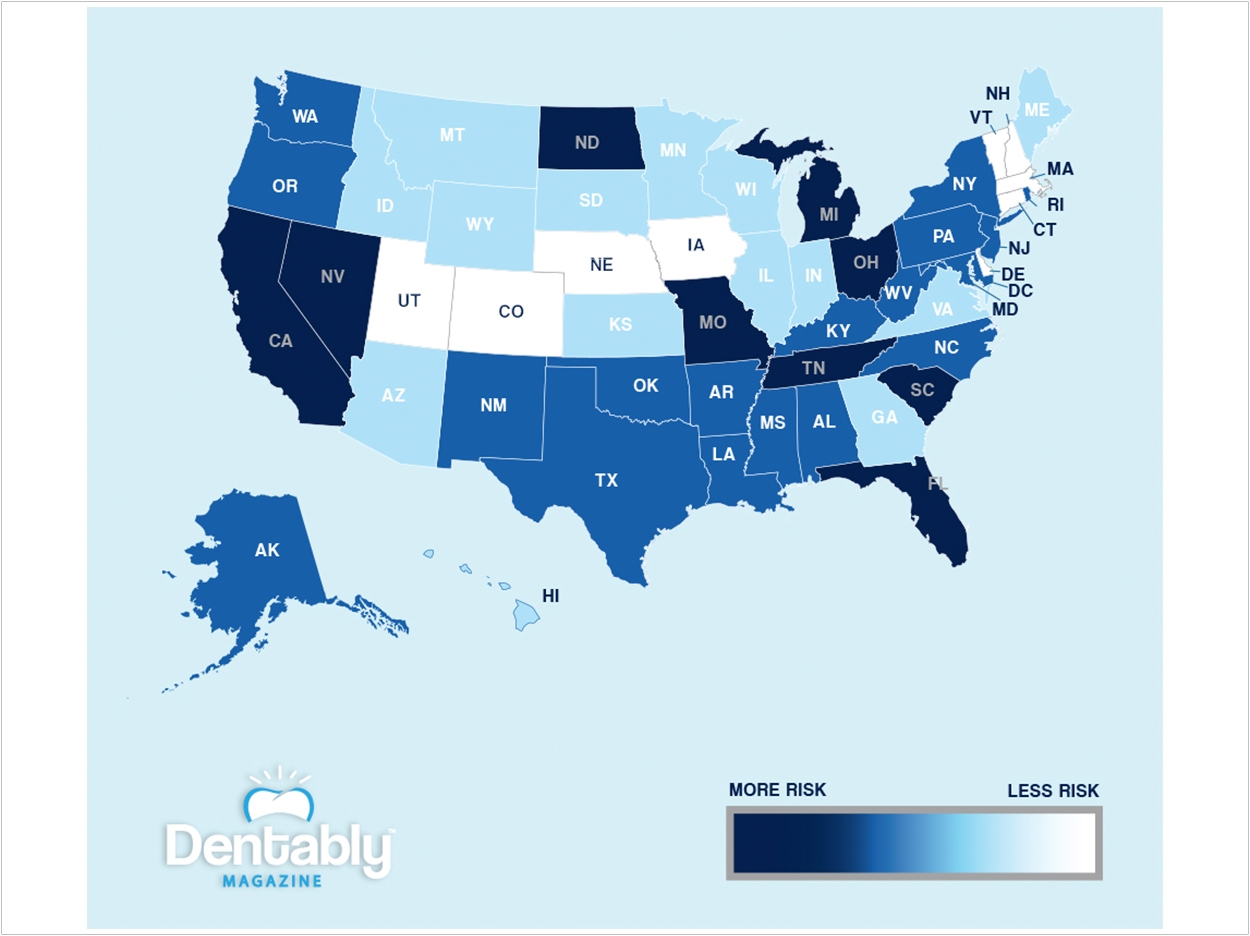
Children with autism often face significant challenges in practicing oral hygiene at home and in receiving oral healthcare in a dental office due to behavior issues and hypersensitivity to uncomfortable external stimuli. As a result, many of these children may be at a higher risk of developing oral health problems than their neurotypical peers. Dentably recently crunched the numbers to see which states present the greatest risks to this population.
Using data from the 2017 National Survey of Children’s Health, Dentably looked at states where children under the age of 17 had not visited the dentist in the past year in addition to 10 other dental health indicators, weighting them accordingly. The organization also examined which states showed higher percentages of providing children with autism treatment, including medication and behavioral approaches.
“Research shows an overall lack of treatment for autism in the United States, which may be putting these children at risk for dental care issues because children with autism are more likely to develop certain oral health problems than children without,” said Greg Grillo, DDS, director of dentistry at Dentably. “Exacerbating this problem, they are more at risk in states where the data shows low percentages of autism treatment as well as dental treatment.”
According to Dentably, children with autism face the greatest risks in Missouri, followed by Nevada, Oklahoma, South Carolina, California, Michigan, Ohio, Florida, Illinois, and Tennessee. These children face the least risks in Connecticut, preceded by Utah, Colorado, Nebraska, Iowa, the District of Columbia, Massachusetts, Vermont, New Hampshire, and Delaware.
Missouri presents the greatest risks, Dentably says, because children with autism there simply aren’t being taken to the dentist or receiving dental treatment as often as they should. Next, Nevada may have a significant rate of autism-related behavioral treatment, but there is a lack of dental care for children overall that suggests those with autism are at great risk. Oklahoma has similarly low percentages of children receiving dental care overall.
South Carolina has a better rate of children receiving dental care, yet many children with autism don’t receive medical or behavioral treatment. California has a large number of children diagnosed with autism, but most of them don’t receive medical or behavioral care, in addition to a lack of dental care. Michigan has slightly better numbers of children receiving dental care, but its percentage of children with autism receiving treatment is still low, Dentably says.
Dentably commends Connecticut as a great example of how a state can provide for its children with autism, as these children receive behavioral and medical treatment, while dental care for children overall is high. Nebraska also has some of the highest percentages of children with autism receiving medical and behavioral treatment, with most children overall receiving sufficient dental care as well.
Related Articles
Desensitization Training Improves Dental Visits for Children With Autism
Q&A: Dr. Romer Ocanto Discusses New Autism Training
Improving Oral Health Outcomes for Children With Special Needs












